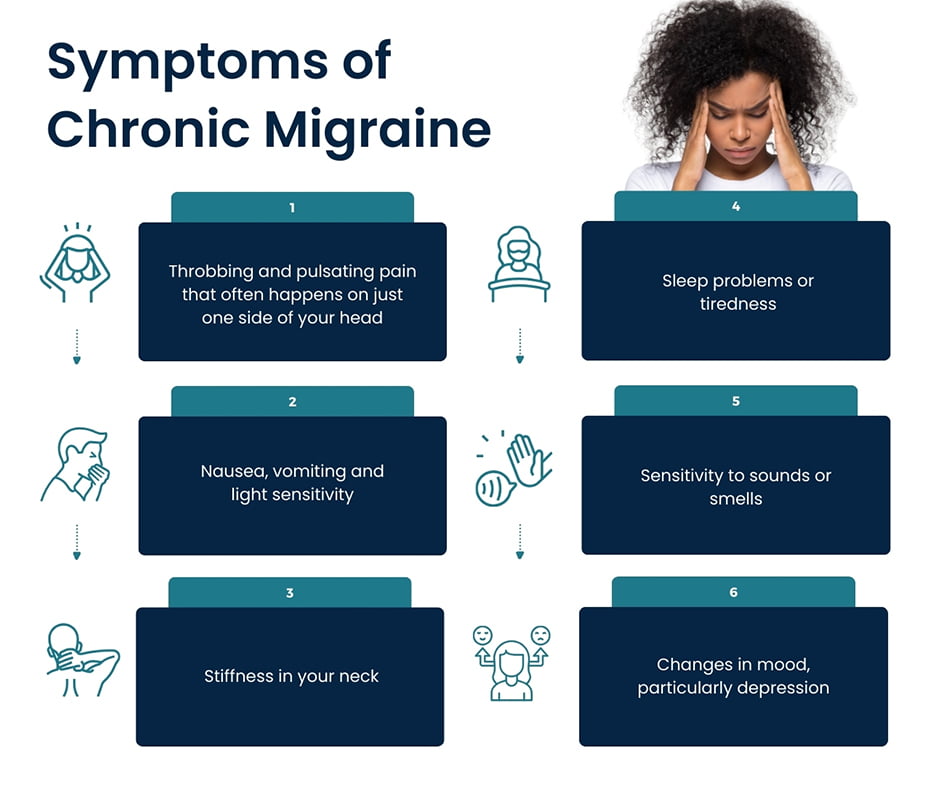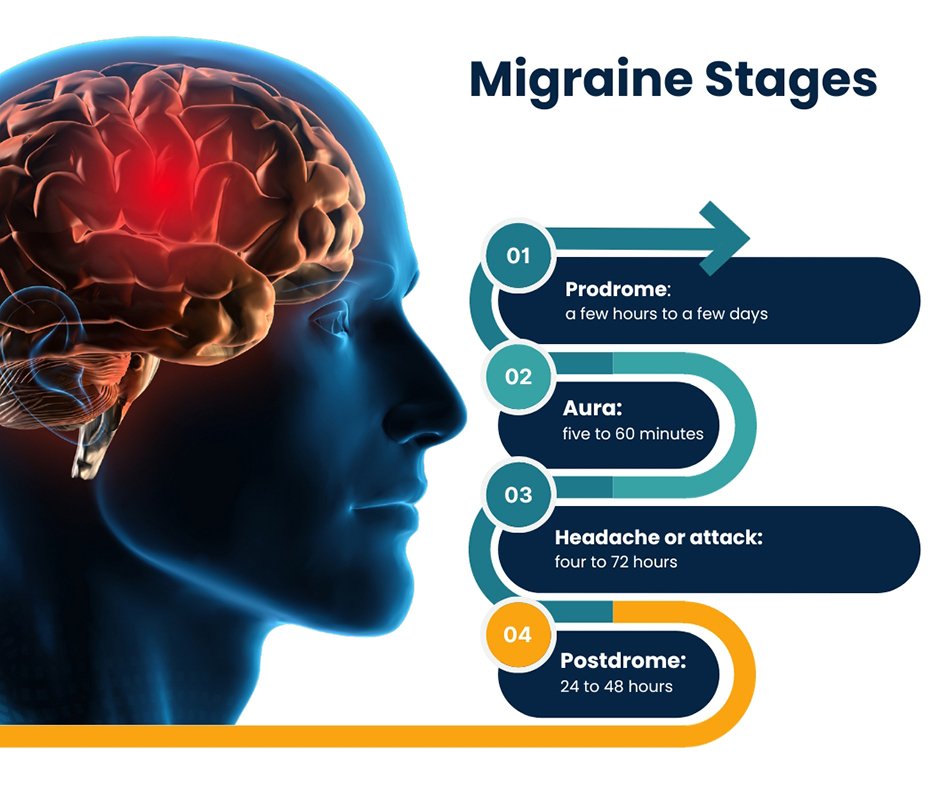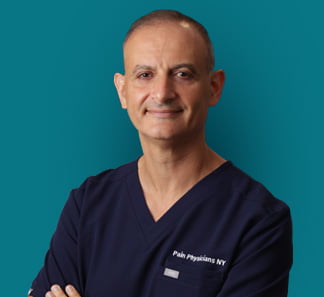Migraine headaches can knock you for a loop, putting you out of action while they run their course. If you suffer with chronic migraines, you’ll do anything to make the pain disappear. To find expert chronic migraine treatment in the New York area, call Pain Management NYC. They offer the best chronic migraine treatment and a wealth of recommendations to begin a lifestyle that works to ensure you don’t get the debilitating headaches as often or as severely as you have. Call today for a consultation and begin to feel good again without fear of chronic migraines.
What Constitutes a Chronic Migraine?
A chronic migraine is characterized by disabling migraine headaches for 15 or more days each month. This differs from an episodic migraine, which happens less than 15 days per month. Make no mistake: a migraine isn’t just a bad headache. It’s classified as a neurological disease with no known cure.
Some people see auras — light phenomena — around people or objects, while others may feel dizzy and unbalanced. Most likely due to stress and hormone swings, nearly 85 percent of people who have chronic migraines are women; but they usually stop after menopause. While migraine headaches affect about 15 percent of the population, only around two percent need chronic migraine treatment. If you’re suffering from chronic migraine pain, visit Pain Management NYC.
They are headache specialists and provide an accurate and effective diagnosis and the best chronic migraine treatment for migraines, as well as for:
- Chronic headaches
- Cluster headaches
- Tension headaches
- Nerve pain
- Neuropathies
- Carpal tunnel syndrome
- Back pain
- Neck arthritis and shoulder pain
What Are the Symptoms of a Chronic Migraine?
Aside from nausea, vomiting and light sensitivity, you may have lesser-known symptoms as well. Pay attention to everything going on with your body during an attack so that you can relay the information to your doctor and help him come to the most accurate diagnosis.
Other common chronic migraine symptoms include:
- Throbbing and pulsating pain that often happens on just one side of your head
- Sleep problems or tiredness
- Changes in mood, particularly depression
- Sensitivity to sounds or smells
- Stiffness in your neck
- Extreme fatigue
Keeping a diary may help you determine what triggers the need for chronic migraine treatment. You may have symptoms that aren’t typical, so it’s important to keep an open mind. Your migraine specialist relies on the information you provide to come to the most accurate diagnosis so that you can receive the best chronic migraine treatment.

What’s the Best Chronic Migraine Treatment?
Everyone has different triggers just like everyone finds that various treatments work for them and not necessarily for other people. A preventative drug is used to reduce the severity or number of headaches. To be thought successful, the reduction must be at least 50 percent.
Preventive treatment of your chronic migraines may include:
- Botox® injections
- CGRP Antagonists – New Class of Medications, such as Nurtec.
- Beta-blockers
- Antidepressants
In addition to pain medication taken once a migraine has started, other common chronic migraine treatments your specialist may recommend include:
- Nerve blocks
- TMS Treatment
- Nerve stimulations
- Psychotherapy to reduce stress and anxiety
What Causes Chronic Migraines?
Numerous causes of migraines exist. The hard part is figuring out which ones apply to you, which is why it’s vital you seek the best chronic migraine treatment from a dedicated headache specialist.
Causes of chronic migraines include:
- Medications for which you have an allergy or physical response that triggers pain
- Genetics that seem to play the biggest role in the development of chronic migraines
- Blood flow issues in your brain
- Pain signal dysfunction
- Brain chemistry changes
You’re at a higher risk of developing chronic migraines if you have any of the known determinants of the painful condition and have any other risk factors, such as:
- Obesity
- Sleep apnea
- Anxiety or depression
- Previous head injury
- Other pain-related conditions such as fibromyalgia
Once the main cause of your condition is understood, your doctor then works with you to determine what main conditions trigger your chronic migraine episodes.
The most common triggers include:
- Overuse of certain medications
- Stress
- Foods and food additives like the nitrates found in processed meat, certain cheese and chocolate
- Changes in the weather
- Dehydration and hunger
What Are the Stages of a Migraine?
A chronic migraine has four distinct stages that a sufferer must endure. Each of these phases has its own set of symptoms.
The four stages of a chronic migraine and how long they last include:
- Prodrome: a few hours to a few days
- Aura: five to 60 minutes
- Headache or attack: four to 72 hours
- Postdrome: 24 to 48 hours
The symptoms of the prodrome — irritability, sleeplessness, problems concentrating — can help you become aware of when a migraine might hit. If you have excessive yawning, food cravings or depression before a migraine, your doctor may suggest that you take preventive steps. If you experience nausea and vomiting, drink plenty of fluids to prevent dehydration.
Some people experience auras, while others don’t. The postdrome stage can consist of confusion and a feeling of being physically and mentally drained. Not all people who have chronic migraines go through all the stages, but in general, that’s the sequence of events.

Do Lifestyle Changes Reduce the Need for Chronic Migraine Treatment?
There are some general lifestyle activities in NYC that may be triggering if you get these intense headaches. Alcohol, smoking, even the strobe lights used at nightclubs can be a catalyst for your pain.
Other lifestyle changes your doctor may recommend to reduce the recurrence of migraines include:
- Drinking plenty of water
- Practicing meditation or yoga
- Staying away from strong odors like smoke, perfume and essential oils
- Getting sufficient sleep
- Avoiding processed food
- Resting in a dark, quiet room when you get overtired
Getting treatment for underlying conditions, such as sleep apnea and fibromyalgia, is a path your doctor explores with you to deter the continued threat of migraines.
While uncommon, if you don’t get the appropriate chronic migraine treatment for your chronic condition, you may undergo serious consequences, such as:
- Stroke
- Seizures related to auras
- Severe migraine pain that goes unabated for as long as three days in a row
- Heart attack
If you live in New York City and suffer from chronic migraines, contact Pain Management NYC for the best chronic migraine treatment and ongoing support as you work to find how to prevent their onset. Get back into the life that you want and deserve.

Boleslav Kosharskyy, MD, is a top-rated, best-in-class interventional pain management doctor. He is board-certified in Anesthesiology, Interventional Pain Medicine, and Palliative Care.
Dr. Kosharskyy is an Associate Professor of Anesthesiology and Rehabilitation Medicine at Albert Einstein Medical College. He’s also the Associate Medical Director of Pain Medicine and Director of Anesthesia for the Joint Replacement Center at Montefiore Medical Center and Albert Einstein Medical College.
He is an active member of the American Society of Anesthesiology (ASA), the American Society of Regional Anesthesia and Pain Medicine (ASRA), and the New York State Society of Anesthesiologists (NYSSA)
